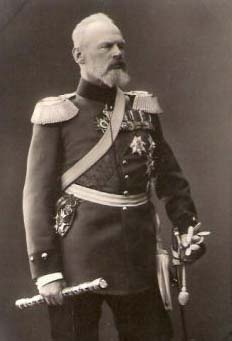The orders, decorations, and medals of the German states, in which each states of Germany has devised a system of orders and awards to honour residents for actions or deeds that benefit their local community or state, are in turn subsumed within the German honours system. Each state sets their own rules and criteria on eligibility and also how each medal is awarded and presented. Most of the orders allow for the recipient to wear their orders in public.
Most of the orders have the form of a maltese cross.
The city states of Bremen and Hamburg do not allocate any orders. An exception was made during World War I when the Hanseatic Cross was awarded jointly with the city of Lübeck. Even today, senators of the two states reject any foreign orders. Former German chancellor Helmut Schmidt received a number of accolades, among them was the Grand Cross of the Order of Merit of the Federal Republic of Germany, which he chose not to accept in Hanseatic tradition, in order to refuse any decoration presented for merely fulfilling one's duty. [1]

The Order of Merit of the Federal Republic of Germany is the only federal decoration of Germany. It is awarded for special achievements in political, economic, cultural, intellectual or honorary fields. It was created by the first President of the Federal Republic of Germany, Theodor Heuss, on 7 September 1951. Colloquially, the decorations of the different classes of the Order are also known as the Federal Cross of Merit.

Prince Leopold of Bavaria was born in Munich, the second son of Prince Regent Luitpold of Bavaria (1821–1912) and his wife Archduchess Augusta of Austria (1825–1864). He was a Field Marshal (Generalfeldmarschall) who commanded German and Austro-Hungarian forces on the Eastern Front in World War I.

Adrian Friedrich Wilhelm Julius Ludwig von Verdy du Vernois, often given the short name of Verdy, was a German general and staff officer, chiefly noted both for his military writings and his service on Helmuth von Moltke the Elder's staff during the Franco-Prussian War.

The Carl Zuckmayer Medal is a literary prize given by the state of Rhineland-Palatinate in memory of Carl Zuckmayer. The medal itself was fashioned by state artist Otto Kallenbach. The prize is also given with a 30 liter cask of Nackenheimer wine from the Weingut Gunderloch, a winery valued by Zuckmayer. The bestowal takes place on 18 January, the anniversary of Zuckmayer's death.
Orders, decorations, and medals of the German Empire covers those decorations awarded by the states which came together under Prussian leadership to form the German Empire in 1871. For convenience's sake, this category also covers the decorations of the various German states which were no longer in existence in 1871, mainly because they had been annexed by Prussia during the Wars of Unification or before.

Felix Ludwig Grafvon Bothmer was a German general from Bavaria. He notably served in the Brusilov offensive of World War I.
The Order of Saint Michael, later Order of Merit of Saint Michael, was founded on September 29, 1693 by Joseph Clemens of Bavaria, then Archbishop-Elector of Cologne, as a military order. Its full name was Most Illustrious Military Order of Defenders of Divine Glory under the Protection of the Holy Archangel Michael. Initially, this order was only open to the Catholic nobility. Upon its institution, the order consisted of the Grand Master and three classes: Knight Commander, Knight Officer and Knight, divided in two divisions, spiritual and secular. The Grand Master Knight Commanders were bestowed with a breast star. The Knight Commanders or Knights Grand Cross, officially limited to nine of the spiritual and the secular division each, constituted the chapter. The order had four spiritual Knights Officers: chancellor, honorary chaplain, almoner, and sacristan, and the same amount of secular Knights Officers: marshal, treasurer, equerry, and chamberlain. The third class of Knights was limited to 18 spiritual and secular knights each, so the order ideally should have had 63 members, representing the age of the queen of angels.

The Order of Merit of Berlin is this highest award of the German State of Berlin. Awarded in the name of the Senate of Berlin, the order had recognized outstanding contributions to the State of Berlin since 21 July 1987. Awarded each year on 1 October, the anniversary of the Berlin Constitution, the order is limited to no more than 400 living recipients. As of 2016 the order had been awarded 431 times, to 152 women and 279 men.

The Order of Merit of Rhineland-Palatinate is a civil order of merit, of the German State of Rhineland-Palatinate. The order is presented for outstanding service to the state and people of Rhineland-Palatinate. It was founded on 2 October 1981, and first awarded in 1982. The order is limited to 800 living recipients. Through 2012, the order had been awarded 1035 times.

The Order of Merit of Schleswig-Holstein is an award presented by the Minister-President of German state Schleswig-Holstein. Established in 2008, it is the highest award of the state. Prior to 2008, the Schleswig-Holstein-Medaille was the highest award of the state. In the establishing decree of the order it states prior recipients of the medal are members of the order. To preserve the exclusivity of the order it is limited to 500 living recipients.

The Order of Merit of Saxony-Anhalt is the highest award of the German State of Saxony-Anhalt. Established 23 May 2006, the order is presented by the Minister-President of Saxony-Anhalt. The total number of living recipients is limited to 300. Recipients of the order are recognized for exceptional performance over a longer period of time or an extraordinary individual performance for Saxony-Anhalt and its citizens. Individuals are considered from among the citizens and non-citizens of Saxony-Anhalt.

The Principality of Liechtenstein is the last independent principality of the Holy Roman Empire. After the fall of the empire, Liechtenstein aligned itself with Austria-Hungary until the end of World War I. Since that time, Liechtenstein has been most closely aligned with its neutral neighbor Switzerland. The honours system of Liechtenstein is made up of an order of merit, established in 1937, and a limited number of commemorative medals that were awarded during the 20th century.
The Minister-president is the head of state and government in thirteen of Germany's sixteen states.
The Lessing Prize of the Free State of Saxony is a German literary award. It was founded in 1993 by the Government of the Free State of Saxony and is awarded every two years. It consists of a main prize, which honours outstanding achievements in the spirit of Gotthold Ephraim Lessing, especially in the field of literature, literary criticism and the theater. This prize is worth 20,000 euros. In addition, two further "promotional prizes" are awarded, which seek to publicly recognize and promote promising beginnings in these fields. These prizes are each worth 5,500 euros.
After World War II, Germany was split into several different occupation zones. But later the different occupation zones were merged into East and West Germany. West Germany is where the modern German state gets its current traditions of medals and decorations from.
Hippolyt Theodor Wilhelm Georg Benedikt Johannes Maria Baron Poschinger of Frauenau was a German businessman, forest manager and politician.
The following list provides an overview of the minimum requirements that must be met in the respective federal state for an association of members of the corresponding state parliament to receive the status of a parliamentary group.